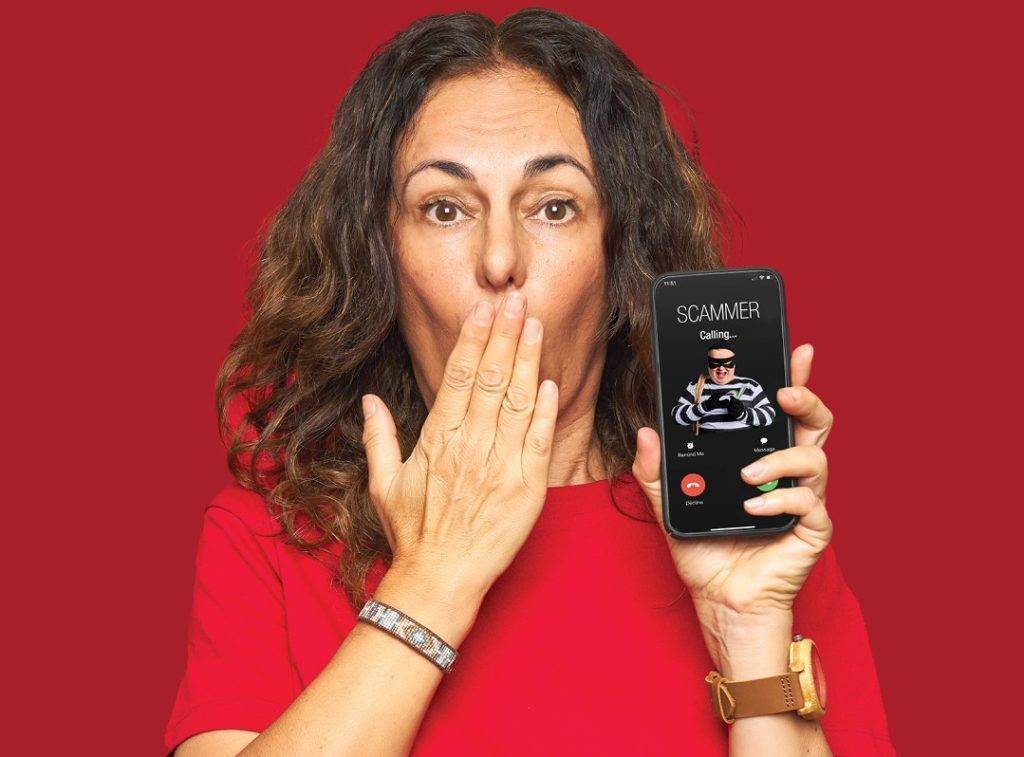What Is Spoofing?

Scammers are an ever-present threat to our digitally connected lifestyle. They’re inventive and adaptable (not a compliment!) – forcing all of us to learn their latest tricks and traps to stay safe. With an increase in the number of scam contacts that have been going around, we want to prepare you for some of the common cons that you can expect to come creeping around sooner or later.
Spoofing is a form of scam where criminals impersonate a legitimate organization to get your personal information or access. If that sounds like phishing or other forms of identity theft – it’s because they are all similar branches on the same tree.
The most important thing to keep in mind: FFCCU will never text, email, or call you asking for personal or account information, like your social security or account number. If someone reaches out and asks for that information, they are not from FFCCU, and it’s likely a scam.
SPOOFERS ARE STANDING BY
Scam phone calls and emails are probably the most common means of phishing for sensitive information. But text messages, letters, malicious pop-ups, and even door-to-door visits are routes scammers take that we aren’t as accustomed to.
Spoofers in particular will often claim to be from a real authority (like FFCCU, the government, big retailers like Amazon, or common-use tech sources like Google) and attempt to scare you into thinking there is an urgent issue to fix. Ironically, claiming identity theft has occurred on one of your accounts is a common tactic spoofers use to get your banking login credentials!
SPOOFER RED FLAGS
Ahead are some useful signs to look for that you might be in the sights of a scammer:
- You are contacted out of nowhere by someone claiming to be from a real organization (like FFCCU or a retailer) unexpectedly or by an unusual method. They might claim that there is an issue needing your prompt attention.
- Anyone asking for your social security, login & password information, credit/debit card, or PIN, especially without you ever contacting the organization should raise a big red flag.
- Scammers might ask you to perform a favor, grant them remote access to your devices, ask directly for money, or request personal information.
- Spoofers might insist they need to confirm your identity with a verification code they send (Notably odd, considering they are contacting you in the first place!).
- They might push you to download an unfamiliar app or send a suspicious link to click, in order to ‘fix’ the issue they are trying to convince you exists.
CRIMINAL CHAMELEONS
There’s a reason so many people get taken by scammers – they are very good at what they do. Spoofers, in particular, will use genuine graphics, employee names, and caller ID to replicate the organizations they are posing as. This means you must exercise caution whenever you receive communications from seemingly legitimate sources.
For example, if you receive an email that claims to be from FFCCU but seems suspicious, look beyond the sender’s display name to the actual email address. If it is not from an @ffcommunity.com address, don’t trust it! Scammers know that we are busy and accustomed to routine – they will color their story with a few real details to seem legitimate. Be vigilant, ask a few questions, and you’ll reduce your chances of stumbling into a scam.
DON’T KNOW WHAT TO DO? CONTACT FFCCU!
Don’t be ashamed to contact us if something seems fishy. If the communication is legitimate, FFCCU will happily take the time to verify.
Likewise, if you are the victim of spoofing, let us know right away! Feelings of embarrassment at having been tricked only work in the favor of the criminals. Scammers exploit the overwhelming nature of everyday life, and prey on our routines and trust to catch us when we are vulnerable and unsuspecting. In the event you are caught up in a con, act fast to minimize the damage.
The best response when you are on the line with a spoofer and realize the person on the other end is trying to steal your information and money…just hang up!
You can always get in touch with us by phone, text, website chat, or through the chat function on our new mobile app (one of the most secure ways to hear from and follow up with FFCCU teammates).
WHAT IS SPOOFING? IT’S AVOIDABLE – IF YOU’RE CAREFUL!
While our FFCCU teammates may periodically give you a call about inquiries you’ve begun, such as loan applications or address changes, FFCCU will never NEVER text, email, or call you asking for personal or account information, like your social security or account number. If someone reaches out and asks for that level of personal information, they are not from FFCCU, and it’s likely a scam.
If you receive a call, text, email, or other communication that seems unprompted, check to see if the number or email address is suspicious (from outside of 216 or not @ffcommunity.com).
When in doubt, contact Firefighters Community Credit Union FIRST!
Call or text: 216.621.4644 or chat with us on ffcommunity.com
Posted In: Membership: Info to Know




